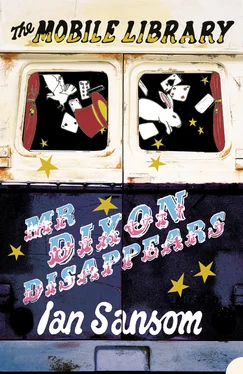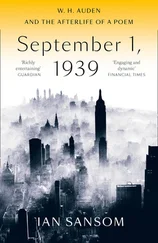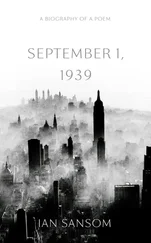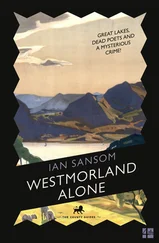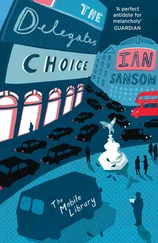‘Would you like me to open a window?’
‘No.’ It was freezing cold.
‘Would you like a cigarette?’
‘What? No. I don’t smoke. Why would I want a cigarette?’
Sergeant Friel wrote all this down. The sea passed silently to their left. Israel was still straining to see if anyone was following the car. They weren’t.
Sergeant Friel cleared his throat, a sure sign of his being about to deliver some more of his rehearsed lines.
‘What is it now?’ said Israel.
‘Mr Armstrong. You may have seen me making notes. This is a contemporaneous record of our conversation.’
‘Yes,’ said Israel, ‘I know. You told me already.’
Sergeant Friel held the small black notebook open towards Israel. ‘I would like you to read them and tell me if you agree with them.’
It was light outside but it was too dark to read anything clearly in the back of the car.
‘I can’t read them. It’s too dark,’ said Israel. ‘I can’t read anything in this dark.’
‘I’ll read them to you then, and you can tell me if you agree with them.’
Sergeant Friel began to read.
This really was not good. This was way beyond anything Israel had ever experienced before: being in the back of a car, early in the morning, listening to someone reading out an account of what had happened to you over the past half an hour, but from an entirely different perspective to your own; it was like being on some kind of extreme creative writing course. Sergeant Friel talked about the police officers present. About handcuffing Israel. About giving Israel a caution. And what made it even more sinister was that the whole story was narrated verbatim, so it was all, ‘I said’, ‘He said’, ‘I said’. If Israel had been a young American novelist, he could really have made something of this material.
By the time Sergeant Friel had finished reading the notebook to Israel and Israel had refused to agree with it, they had arrived at Rathkeltair central police station, a heavily fortified building which looked like it might have been a workhouse in another life, a big grey stone building with menacing chimney stacks, barbed-wire fencing and CCTV cameras strung up all around. Huge metal doors opened as they arrived and they drove round the building to the back entrance, past parked police cars and vast industrial bins.
Israel was getting pretty close to hysterical now as he was led through a long grey corridor to a small grey windowless office, where Sergeant Friel spoke to a uniformed officer behind a desk. It was another bizarre, mind-bogglingly rehearsed scene, like a play within a play.
‘As a result of forensic evidence linking him to the scene,’ said Sergeant Friel, ‘I have arrested this person on suspicion of a robbery and kidnapping.’
‘What?’ said Israel. ‘Forensic evidence? I—’
‘You’ll get your chance,’ said the uniformed officer to Israel. ‘Now just listen.’
Sergeant Friel then proceeded to read out the contents of his notebook again and at the end he said, ‘Offered, read over, refused to sign.’
‘This is totally Kafkaesque, do you know that?’ said Israel. Sergeant Friel and the other policeman ignored him. ‘Hello? Can you hear me?’
Sergeant Friel added this comment to his notebook and then leant across the desk to a small grey box mounted on the wall, which had a slot; he opened up the notebook to the last page and ceremoniously placed it in the slot, and the machine stamped the book. With bright red ink.
‘Have you ever read any Kafka though, honestly?’ Israel asked. ‘“In the Penal Colony”?’
The uniformed officer behind the desk said to Israel, ‘Do you understand why you’ve been arrested?’
‘No, I do not. I have absolutely no idea why—’
‘You do not understand why you’ve been arrested?’
‘Look. I understand it all right, I’m not an idiot, but I don’t agree with it—’
‘You have the right to have someone informed,’ interrupted the officer. ‘You have the right to free legal advice. And a right to read a copy of our code of practice.’
‘Your code of practice? Code of practice! What are you, a firm of independent financial advisers?’
If Israel’s sense of humour went largely unappreciated on a daily basis around Tumdrum – and it certainly did – then here in Rathkeltair police station it seemed that he was just about the unfunniest person alive.
‘We run a duty solicitor scheme, or I can call a solicitor of your choice. You need to tell me.’
Israel asked them to ring Gloria in London. She’d know what to do: admittedly, she specialised in company law, but it was still the law. She’d sort it out.
‘Right, good, am I free to go now?’
He was not free to go now.
He was taken into another small grey windowless room with Sergeant Friel and the armed officers. First they fingerprinted him. Then Sergeant Friel asked Israel to remove his clothes.
‘What? Remove my clothes? Oh, come on, you’re joking now, are you?’
‘No. Can you remove your clothes, please, Mr Armstrong.’
‘In here? With all of you standing there?’
‘That’s correct.’
‘And with handcuffs on?’ said Israel. ‘What am I, Harry fucking Houdini?’
‘We’ll not have the language, thank you,’ said Sergeant Friel. ‘We’ll take the handcuffs off. But you have to take off your clothes. I’m not taking off your clothes.’
‘I don’t want you taking off my clothes! No, look. This is getting silly now. I mean…Look…’ Israel did his best to calm himself. ‘You’ve brought me in, that’s fine. It’s wrong, of course, it’s just a big mistake, but…But the clothes. That’s just—’
‘Can you take off your clothes please, Mr Armstrong? I’ll remove your handcuffs.’
‘But…I’m a librarian! I check out your books! You can’t just…’
He recognised another of the policemen present as a borrower of Hayes car manuals from the library, and he appealed directly to him, as a library user.
‘It’s me! Look! Me. Israel Armstrong. The librarian!’
The policeman stared back emotionless at Israel. Being a librarian was maybe not going to swing it. Israel could see no easy way out of this.
‘Do you know Stanley Milgram?’ He was babbling now.
‘Clothes, Mr Armstrong.’
‘Or the Stanford prison experiment?’
‘Clothes, Mr Armstrong.’
‘In the Stanford prison experiment, they divided up the volunteers into guards and inmates to see how they behaved.’
‘Clothes, please.’
‘And the guards behaved like guards. And the inmates behaved like inmates. Have you ever read about that? Have you?’
‘Clothes,’ said Sergeant Friel.
‘And if I do? If I do take them off?’
‘Then we’ll be able to move on.’
‘Really?’
‘Yes.’
‘Fine. OK.’ He was desperate. ‘I’ll take my clothes off. You all have to turn around though, OK?’
‘You turn around,’ said Sergeant Friel.
‘Oh, all right, I see. Fine. OK. I’ll turn around. This is ridiculous, you know.’
‘Thank you, Mr Armstrong. The quicker you get on with it, the quicker it’ll be sorted out. This is for you.’ Sergeant Friel handed Israel a one-piece paper suit, with a zip up the front.
‘I see. It’s like Guantánamo Bay.’
‘Och aye. Just like it.’
Once he’d been unhandcuffed and taken off his clothes – the duffle coat, the tank-top, his cords, one of Brownie’s T-shirts – ‘You Could Have It So Much Better’ – Israel put on the paper suit and a pair of plimsolls. His clothes were sealed in see-through plastic bags.
‘It chafes.’
‘Sorry?’ said Sergeant Friel.
‘The paper suit. It chafes.’
Читать дальше
